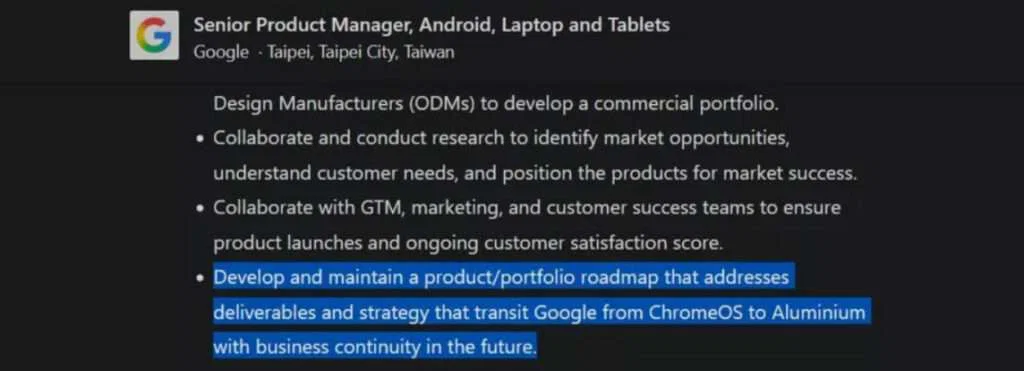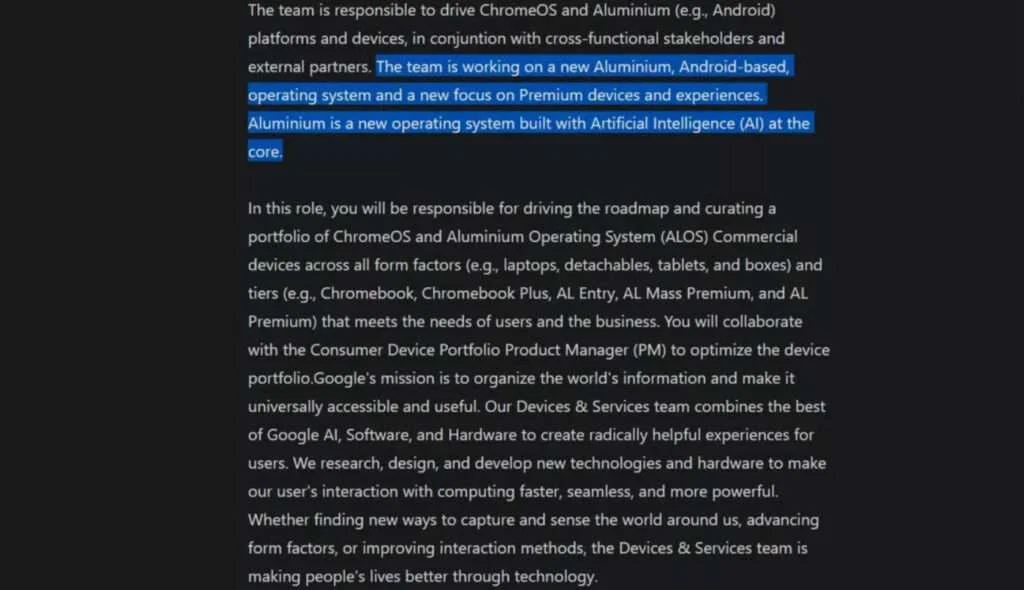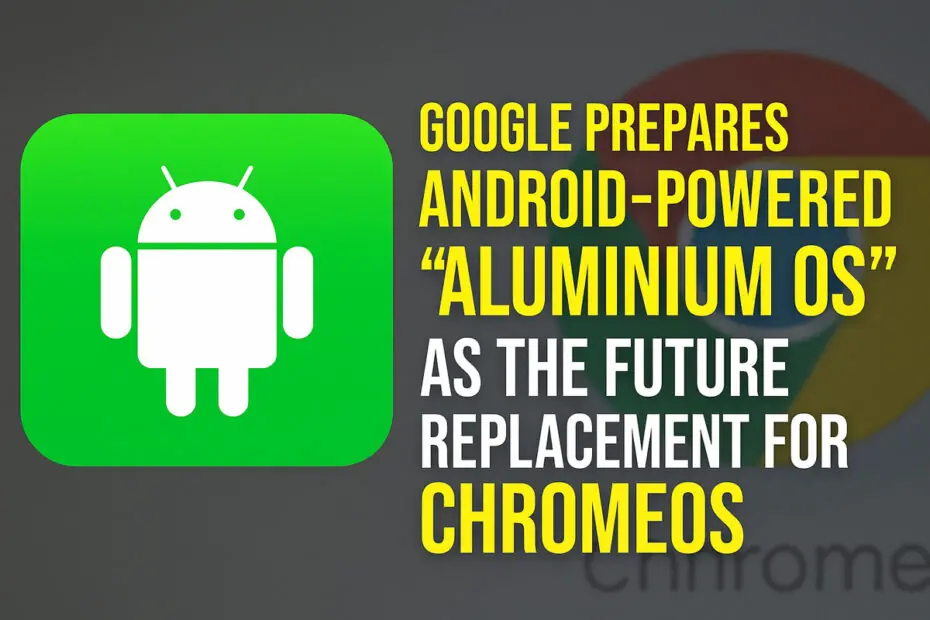A deleted job listing has provided insight into Google’s effort to unify Android and ChromeOS into a new AI-focused operating system known as “Aluminium,” which is rumored to debut in 2026.
Google’s long-rumored project to unify its laptop and mobile operating systems has a name and a clearer timeline. According to a since-deleted job listing, the tech giant is actively developing a new operating system called “Aluminium”, built with artificial intelligence at its core and designed to eventually replace ChromeOS on laptops and tablets.
A recently removed job listing for a Senior Product Manager in Google’s Taiwan office explicitly stated the role would “manage the transition from ChromeOS to Aluminium.” The wording leaves little doubt: this isn’t a trial project, but a deliberate step in Google’s long-term platform strategy.

The job description for the now-closed position provided useful clues about Aluminium. It stated the system is “built with artificial intelligence at its core,” which implies close integration with Gemini. With this approach, Google appears to be preparing to compete with other AI-centric operating systems, including Microsoft’s upcoming Copilot+ version of Windows.

The job post mentioned something else, too: until Aluminium devices are actually reached the market, the person would still manage today’s ChromeOS products. In other words, Google seems to be planning a slow, steady shift instead of a sudden switch.
The Long Road to a Unified Platform
Google’s long-running goal to build a unified operating system across devices has been widely discussed. A report from November 2024 suggested the plan goes further than integrating Android apps into ChromeOS. Instead, it points to a full transition from the Chromium-based system to an Android-based architecture.
The idea was confirmed during the Snapdragon Summit in September, when Sameer Samat, Google’s Head of Android Ecosystem, said the company is “combining ChromeOS and Android to create a new PC platform with advanced AI and productivity features.” He also shared the first official timing, noting a planned launch in 2026.
The Big Question: What Happens to Existing Chromebooks?
For the millions of people already using Chromebooks, the biggest unknown is whether their devices will qualify for an upgrade to Aluminium. The job listing didn’t answer that directly, but reporting from Android Authority may offer some guidance.
According to the report, Aluminium OS is already running on reference hardware using MediaTek’s Kompanio 520 and Intel’s Alder Lake chips. If testing continues in that direction, Chromebooks with similar processors could be candidates for the upgrade, although Google has yet to confirm anything publicly.
The reveal of Aluminium OS feels like a big step for Google. It shows the company is serious about unifying its platforms and leaning fully into AI-driven computing. There’s still a lot we don’t know, but it’s starting to look like 2026 will be the year everything changes.
Maybe you would like other interesting articles?

